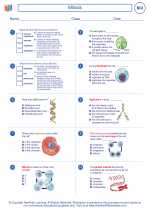Surgery: An Overview
Surgery is a branch of medicine that uses operative techniques to investigate or treat a pathological condition such as a disease or injury, to help improve bodily function or appearance, or to repair unwanted ruptured areas. It can involve cutting, abrading, suturing, or otherwise physically changing body tissues and organs. Surgery can be performed for various reasons, including diagnostic, therapeutic, reconstructive, or cosmetic purposes.
Types of Surgery
- Diagnostic Surgery: This type of surgery is performed to confirm a diagnosis. For example, a biopsy may be taken during surgery to determine whether a growth is cancerous.
- Therapeutic Surgery: These surgeries are performed to treat a medical condition. They can range from minimally invasive procedures to major operations.
- Reconstructive Surgery: Reconstructive surgery is done to repair or rebuild parts of the body that have been damaged due to injury, congenital disabilities, or medical conditions.
- Cosmetic Surgery: Cosmetic surgery, also known as plastic surgery, is performed to improve a person's appearance or correct physical defects.
Preparation for Surgery
Before undergoing surgery, a patient may need to undergo various tests and evaluations to ensure they are fit for the procedure. This may include blood tests, imaging tests, and discussions about the risks and benefits of the surgery. Additionally, patients are often required to fast for a certain period before surgery to reduce the risk of complications during the operation.
During Surgery
Surgical procedures can vary widely depending on the type of surgery being performed. They may involve the use of anesthesia to induce a state of controlled unconsciousness, as well as the use of specialized instruments and techniques to access and treat the affected area of the body.
Post-surgery Recovery
After surgery, patients are typically monitored closely to ensure they recover safely from the operation. This may involve pain management, physical therapy, and follow-up appointments with the surgeon to assess healing and address any concerns or complications that may arise.
Study Guide
If you're studying surgery, consider the following topics for further exploration:
- History of Surgery: Explore the historical development of surgical techniques and procedures.
- Anesthesia: Learn about the different types of anesthesia used in surgery and their mechanisms of action.
- Surgical Instruments: Familiarize yourself with the various tools and equipment used in surgical procedures.
- Surgical Specialties: Research different surgical specialties, such as neurosurgery, orthopedic surgery, and cardiovascular surgery.
- Ethical Considerations: Consider the ethical and moral implications of surgical procedures, including patient consent and end-of-life care.
Understanding the intricacies of surgery requires a comprehensive understanding of anatomy, physiology, and medical ethics. By delving into these topics, you can gain a deeper appreciation for the complexities and importance of surgical interventions in modern medicine.
.◂Biology Worksheets and Study Guides High School. Mitosis

 Worksheet/Answer key
Worksheet/Answer key
 Vocabulary/Answer key
Vocabulary/Answer key
 Vocabulary/Answer key
Vocabulary/Answer key
 Vocabulary/Answer key
Vocabulary/Answer key
